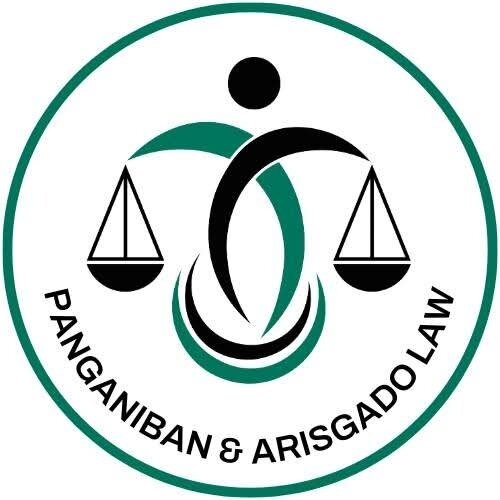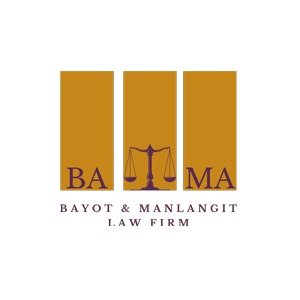Best Elder Law Lawyers in Philippines
Share your needs with us, get contacted by law firms.
Free. Takes 2 min.
Or refine your search by selecting a city:
List of the best lawyers in Philippines

Dagsaan Monterde Castillo Law and Notary Public (DMC LAW)
15 minutes Free ConsultationPhilippines Elder Law Legal Questions answered by Lawyers
Browse our 4 legal questions about Elder Law in Philippines and read the lawyer answers, or ask your own questions for free.
- Who has the legal right to own a property: the one with the Tax Dec with the name of the deceased father (still not transferred by other claimants for 20 years) or the one with the copy of Deed of Absolute Sale of the property showing that it was sold by
- Who has the legal right to own a property: the one with the Tax Dec with the name of the deceased father (still not transferred by other claimants for 20 years) or the one with the copy of Deed of Absolute Sale of the property showing that it was sold... Read more →
-
Lawyer answer by Recososa Law Firm
Hello: Property ownership questions like this can be emotionally and legally complex—especially when families, old documents, and long periods of inaction are involved. We're here to help you sort this out clearly and lawfully. You mentioned two parties: The one...
Read full answer - survival pension
- nalaman ko lang nang namatay ang asawa ko last year july 27,2023..dahil nagkuha ako nang cenomar..pinakasalan sya 1976 at naghiwalay sila ..at nakakita ang babae nang ibang lalaki at may limang anak sila..at isang anak panganay sa asawa ko...tapos pinakasalan nya ako May 22, 1981 at sa pari 1982..ngayon namatay... Read more →
-
Lawyer answer by Dapat & Dapat Lawyers
Dapat and Dapat Lawyers is a full-service law firm with over 13 years of experience representing clients successfully. We are able and willing to represent you after a full assessment of your case.
Read full answer - Estate settlement dispute
- My grandfather (testator) Died in 1996. There are 8 heirs (siblings) mentioned in his will. The estate tax has not been paid until now. 4 out of 8 sold me their share with a notarized deed of sale and a deed of donation. The other 3 wanted to invalidate/ cancel... Read more →
-
Lawyer answer by Nomos Legal Practice
Hello and thank you for contacting SK Solicitors, a full-service immigration law firm based in Lagos, Nigeria. Kindly let us know how we can help you to solve your legal needs and before we can render legal advice service, you...
Read full answer
About Elder Law in Philippines
Elder Law in the Philippines is a specialized area of legal practice focusing on issues that affect the aging population. This includes legal matters related to retirement, health care, guardianship, and the protection of elder rights. The goal of Elder Law is to safeguard the rights and interests of elderly individuals, offering them protection against abuse, neglect, and exploitation. Understanding the unique needs and legal rights of elders is paramount as they navigate various aspects of daily life, finances, and care.
Why You May Need a Lawyer
There are several situations where seeking legal advice from an elder law attorney might be necessary:
- Planning for retirement and ensuring a steady income stream.
- Assistance with health care planning, including Medicaid and Medicare issues.
- Establishing advance directives such as living wills or durable power of attorney.
- Guardianship proceedings if an older adult is unable to make decisions for themselves.
- Addressing issues of elder abuse, neglect, or exploitation.
- Navigating estate planning, including wills and trusts.
- Handling disputes over inheritance or wills.
Local Laws Overview
The Philippines has enacted several laws to protect the rights and welfare of its elderly citizens. Key aspects include:
- Republic Act No. 9994 - Expanded Senior Citizens Act of 2010: This law grants various privileges and benefits to senior citizens, including discounts on goods and services, tax exemptions, and mandatory healthcare coverage.
- Anti-Violence Against Women and Their Children Act of 2004: While focused on women and children, this law also intersects with elder protection where abuse may occur in the context of family relationships.
- Senior Citizens Center Act (Republic Act No. 7876): Provides for the establishment of Senior Citizens Centers in all cities and municipalities, aiming to create facilities for elders to socialize and receive various services.
- Social Pension for Indigent Senior Citizens: A program under the Department of Social Welfare and Development (DSWD) providing stipends to financially challenged elders.
Frequently Asked Questions
What is the legal definition of a senior citizen in the Philippines?
In the Philippines, a senior citizen is defined as any resident citizen of the country aged sixty (60) years or above.
What benefits are senior citizens entitled to under Philippine law?
Senior citizens are entitled to various discounts on goods and services such as food, transportation, medicine, and essential utilities. They also enjoy exemptions from income taxes up to a certain limit and preferential treatment in queues at establishments and government agencies.
How can I report suspected elder abuse?
Suspected elder abuse can be reported to the local police, the barangay, or the Department of Social Welfare and Development (DSWD). It is crucial to provide detailed information and evidence where possible.
What legal protections are available for elder financial security?
Elders can secure their financial future through estate planning, setting up trusts, and executing legal instruments like powers of attorney. These tools help protect against financial exploitation.
Can a senior citizen claim benefits without an ID?
Generally, a senior citizen ID card issued by the Office of the Senior Citizens Affairs (OSCA) is required to claim benefits. However, in some cases, alternative identification documents might be accepted.
What is a senior citizen's right to healthcare in the Philippines?
Senior citizens are entitled to free medical and dental services in government facilities, as well as access to essential health benefits under universal health care.
What laws protect seniors from discrimination?
Laws like the Expanded Senior Citizens Act grant protection against discrimination, ensuring equal rights and opportunities in various aspects including employment and access to services.
Do Filipino senior citizens get discounts overseas?
Philippine laws on senior citizen discounts do not apply overseas; benefits are confined within the country's jurisdiction.
What is an advance healthcare directive?
An advance healthcare directive is a document that specifies a person’s healthcare preferences in cases where they might be unable to communicate these themselves. It includes instructions for end-of-life care, naming a healthcare proxy, and more.
Is legal assistance for seniors provided for free?
Some local government units and non-profit organizations offer free or subsidized legal assistance to seniors. Checking with local barangay offices or elder care centers can provide guidance on available resources.
Additional Resources
There are many resources and organizations dedicated to providing support and assistance to elders in the Philippines:
- Department of Social Welfare and Development (DSWD): Offers various programs, including social pensions for indigent seniors.
- Office of the Senior Citizens Affairs (OSCA): Provides information on discounts and benefits available to senior citizens.
- PhilHealth: Gov't health insurance program offering coverage for elderly healthcare costs.
- Commission on Human Rights: Ensures the protection of elder rights under the law.
- Integrated Bar of the Philippines (IBP): Can assist in finding legal aid services suited to elder care needs.
Next Steps
If you or someone you know requires legal assistance or advice in the area of Elder Law, consider taking the following steps:
- Contact a qualified elder law attorney to discuss specifics and gain professional advice. Use resources like the Integrated Bar of the Philippines to locate one.
- Reach out to local government units or barangays for information on free legal services for seniors.
- Get in touch with the OSCA for guidance on senior benefits and legal rights.
- Collect all relevant documents, such as identification, medical records, and financial information, to facilitate legal consultations and proceedings.
Lawzana helps you find the best lawyers and law firms in Philippines through a curated and pre-screened list of qualified legal professionals. Our platform offers rankings and detailed profiles of attorneys and law firms, allowing you to compare based on practice areas, including Elder Law, experience, and client feedback.
Each profile includes a description of the firm's areas of practice, client reviews, team members and partners, year of establishment, spoken languages, office locations, contact information, social media presence, and any published articles or resources. Most firms on our platform speak English and are experienced in both local and international legal matters.
Get a quote from top-rated law firms in Philippines — quickly, securely, and without unnecessary hassle.
Disclaimer:
The information provided on this page is for general informational purposes only and does not constitute legal advice. While we strive to ensure the accuracy and relevance of the content, legal information may change over time, and interpretations of the law can vary. You should always consult with a qualified legal professional for advice specific to your situation.
We disclaim all liability for actions taken or not taken based on the content of this page. If you believe any information is incorrect or outdated, please contact us, and we will review and update it where appropriate.
Browse elder law law firms by city in Philippines
Refine your search by selecting a city.
















